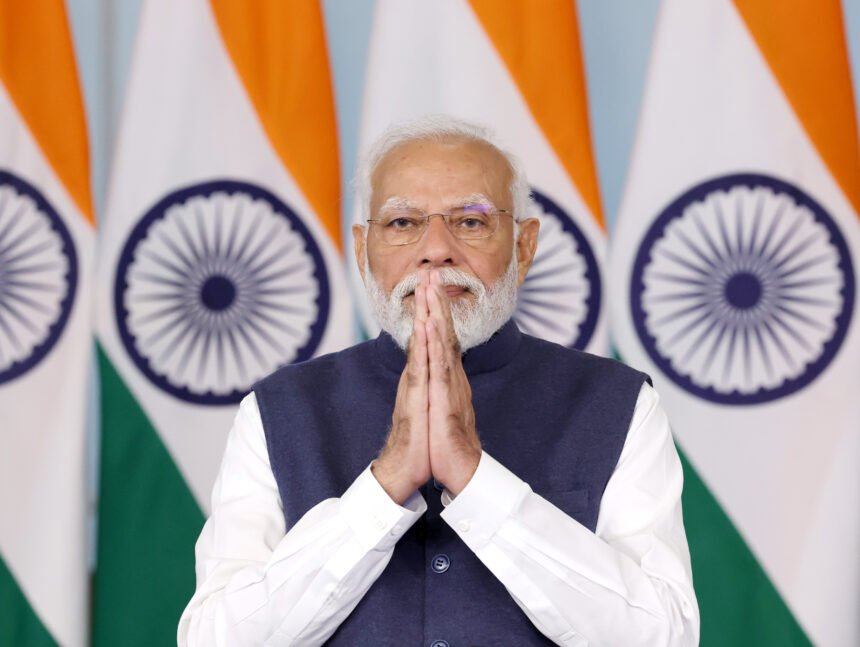Establishment of the International Big Cat Alliance
The Indian Union environment ministry has proposed establishing an International Big Cat Alliance (IBCA) headquartered in India.
- Establishment of the International Big Cat Alliance
- Understanding International Big Cat Alliance (IBCA):
- Research and Monitoring:
- Habitat Preservation:
- Anti-Poaching Efforts:
- Human-Wildlife Conflict Mitigation:
- Advocacy and Policy:
- Education and Outreach:
- Species Supported by IBCA:
- IBCA focuses on iconic species such as tigers, lions, leopards, cheetahs, and jaguars. By conserving these apex predators, the alliance contributes to overall ecosystem health.
- Also Read: The Art of Prioritization

Understanding International Big Cat Alliance (IBCA):
The International Big Cat Alliance (IBCA) is a global initiative dedicated to the conservation and protection of big cat species worldwide. Comprising scientists, conservationists, policymakers, and wildlife enthusiasts, the IBCA collaborates to address the urgent threats faced by these majestic animals.
Key Objectives of IBCA:
Research and Monitoring:
- The IBCA (International Big Cat Alliance) undertakes scientific research to comprehend the behaviour, ecology, and habitat needs of big cats of significant importance. Monitoring big cat populations facilitates the tracking of their status and, in turn, plays a vital role in devising informed conservation strategies.
Habitat Preservation:
- Preserving the natural habitats of big cats is vital for their survival. The International Big Cats Association (IBCA) plays a crucial role in safeguarding the forests, grasslands, and wetlands where these apex predators thrive. By conserving their habitats and protecting the natural resources these magnificent creatures need to survive, IBCA is helping to ensure that big cats can continue to roam free and thrive in their natural environment.
- The organisation works closely with local communities, scientists, and conservationists to develop and implement effective conservation strategies that benefit big cats and those who share their habitats. By supporting IBCA’s efforts, we can help protect these majestic animals and preserve the natural habitats that they depend on.
Anti-Poaching Efforts:
- Illegal wildlife trade through poaching continues to pose a significant threat to animal populations. To combat this, IBCA supports anti-poaching units, imparts training to local communities, and collaborates with law enforcement agencies to curb wildlife crime.
Human-Wildlife Conflict Mitigation:
- As the human population continues to grow, the instances of conflict between people and big cats are also increasing. The International Big Cat Alliance (IBCA) promotes coexistence between humans and big cats. This is achieved through community education initiatives that aim to raise awareness about the importance of big cats in ecosystems and the need for their conservation.
- Additionally, IBCA develops innovative, science-based solutions that safely help people and big cats share the same landscapes. These solutions also promote sustainable livelihoods for local communities, reducing their need to engage in activities that can harm big cats.
Advocacy and Policy:
- The International Bear Conservation Alliance (IBCA) is a leading advocate for reinforcing wildlife protection laws, establishing international collaboration, and implementing stricter enforcement measures. The organisation works closely with government, non-governmental organisations, and the public to enhance awareness and understanding of the importance of conservation efforts. By promoting these initiatives, IBCA aims to safeguard the global bear population and preserve their natural habitats for future generations.
Education and Outreach:
- The dissemination of knowledge to the general public regarding the conservation of large felines facilitates the development of compassion and backing for the cause. The International Big Cat Association (IBCA) undertakes various initiatives such as awareness campaigns, workshops, and educational programs in schools to raise awareness.
Species Supported by IBCA:
IBCA focuses on iconic species such as tigers, lions, leopards, cheetahs, and jaguars. By conserving these apex predators, the alliance contributes to overall ecosystem health.
In a world where big cats face habitat loss, poaching, and climate change, the International Big Cat Alliance stands as a beacon of hope. Through collaboration and concerted efforts, it strives to secure a future where these magnificent creatures roam freely in the wild.
The Union Cabinet has approved the proposal. The IBCA promotes good practices in conserving big cats like tigers, lions, leopards, snow leopards, pumas, jaguars, and cheetahs. India has already committed ₹150 crore for five years towards the IBCA.
The IBCA will bridge the gap in resources, standardised practices, and processes in the ‘big cat’ countries. It will be the first international body to address the conservation challenges of big cats across their range of habitats.
Also Read: The Art of Prioritization
India’s pioneering and long-standing tiger and other extensive cat conservation practices can be replicated in many different countries. The IBCA plans to sign a memorandum of understanding with 16 nations, including Cambodia, to translocate one male and two female tigers. These nations have already given their written consent to join the IBCA.
The alliance is keen on having other countries, conservation organisations, scientific organisations, businesses, and corporations interested in joining and supporting ‘big cats.’ The IBCA will create a central shared repository for technical know-how and a corpus of funds.
It will strengthen species-specific intergovernmental platforms, networks, and transnational initiatives on conservation and protection. Frontline staff in member countries will be trained to elicit local support for big-cat conservation.
Research and development in wildlife monitoring will also be conducted, and local communities living near the forests will be trained in developing eco-tourism and livelihood opportunities. Membership in the IBCA will play a key role in reviving the extinct tiger population in Cambodia. Indian forest officials have already visited Cambodia to ascertain the suitability of forests for restoring and sustaining a tiger population. While there are no concrete plans yet, an official from the Cambodian environment ministry has expressed hopes that a batch of tigers from India could be sent to Cambodia by the end of the year.



